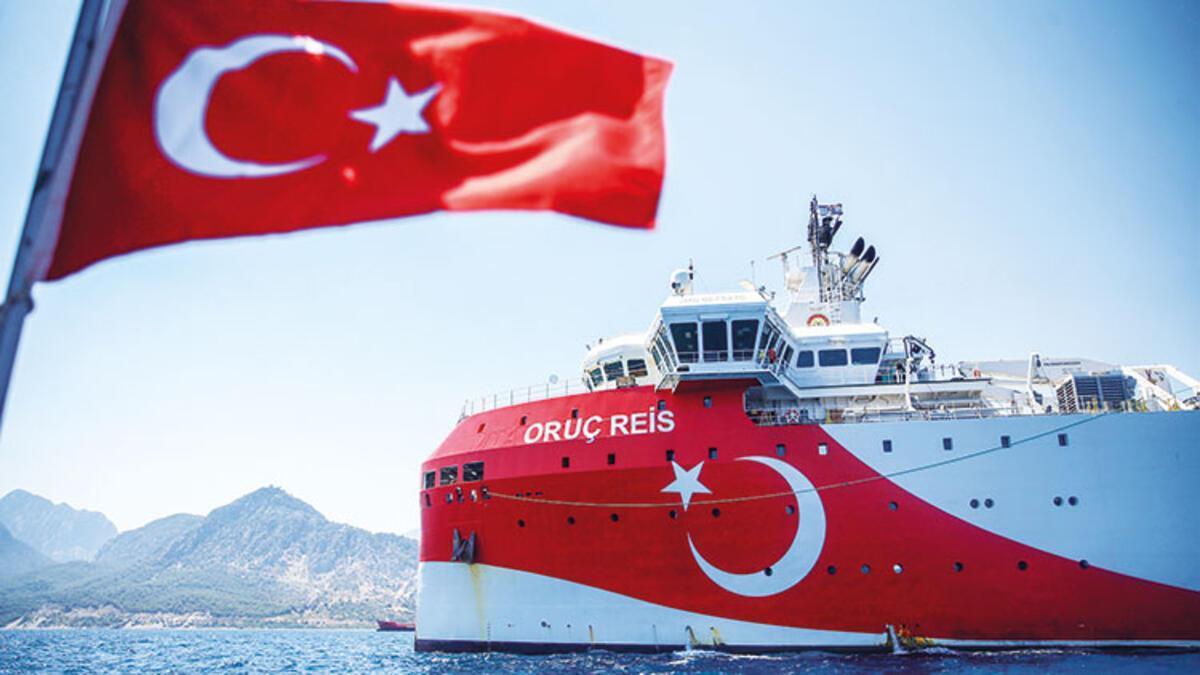
Turkey issued a new Navtex in the Eastern Mediterranean on Aug. 10 for a seismic survey of the vessels Oruç Reis, Ataman, and Cengiz Han through Aug. 10-23.
“Our MTA Oruç Reis seismic research vessel reached the operation area after departing from Antalya, for its new mission in the Mediterranean. Around 83 million Turkish people support you, Oruç Reis,” Energy and Natural Resources Minister Fatih Dönmez wrote on Twitter on Aug. 10.
He stressed the search activities in the Mediterranean and the Black Sea will continue nonstop for achieving Turkey’s energy independence.
Turkey’s move signaled an alarm in Athens, and the Greek leadership convened an extraordinary meeting on Aug. 10.
Greece’s Prime Minister Kyriakos Mitsotakis called on the government for an emergency meeting of the country’s top decision-making body on foreign affairs and defense matters on Aug. 10, Greek media reported. The Greek foreign minister discussed the latest development with his counterparts from Greek Cyprus and Egypt on the phone.
The move came after Greece last week signed a maritime delimitation agreement with Egypt. Previously Turkey decided to suspend drilling in the region as a gesture of goodwill for the ongoing negotiations between Athens and Ankara, which aimed for a solution on differences in the Eastern Mediterranean.
The maritime border agreement for the Eastern Mediterranean signed by Egypt and Greece is “null and void,” Ankara said last week, warning that it violated the continental shelf of Turkey.
The two countries are at odds over overlapping claims for hydrocarbon resources in the region. Seismic surveys are part of preparatory work for potential hydrocarbon exploration.
A similar advisory, or Navtex, last month caused a row that got pacified after the intervention of German Chancellor Angela Merkel. In late July, Turkey announced plans to dispatch research vessel Oruç Reis and two support vessels to carry out operations from Aug. 2 in waters south of the Greek islands of Rhodes, Karpathos, and Kastelorizo. Turkey’s NAVTEX advisory was for a region that falls 180 kilometers away from Greece’s Kastellorizo island.
The declaration increased tensions with its neighbor Greece and prompted criticism by the United States, France, and other European countries. However, President Recep Tayyip Erdoğan said on Aug. 7 that Turkey resumed energy exploration work in the region “to be constructive” amid ongoing talks with Athens.
NATO allies Greece and Turkey are at odds over drilling rights in the Eastern Mediterranean. Turkey has accused Greece of trying to exclude it from the benefits of oil and gas finds in the Aegean Sea and Eastern Mediterranean. It argues that sea boundaries for commercial exploitation should be divided between the Greek and Turkish mainland and not include the Greek islands on an equal basis. Athens counters that Turkey’s position is a violation of international law.
Germany calls for Turkey-Greece talks on E Med
Meanwhile, Germany on Aug. 10 called for direct talks between Greece and Turkey to de-escalate tension and resolve disputes over maritime rights in the Eastern Mediterranean.
Speaking at a news conference in Berlin, German government spokesman Steffen Seibert said Berlin was gravely concerned over recent tension in the region.
“There is an urgent need for the involved parties, Greece and Turkey, to engage in direct talks to discuss legal maritime disputes and hopefully resolve them,” he said.
Asked whether German Chancellor Angela Merkel would try to mediate between Ankara and Athens amid growing tension, Seibert said Berlin was closely monitoring the developments.
“The federal government is in contact with both sides, and it is ready to make a contribution wherever it can be helpful. But what is of decisive importance is direct talks,” he stressed.